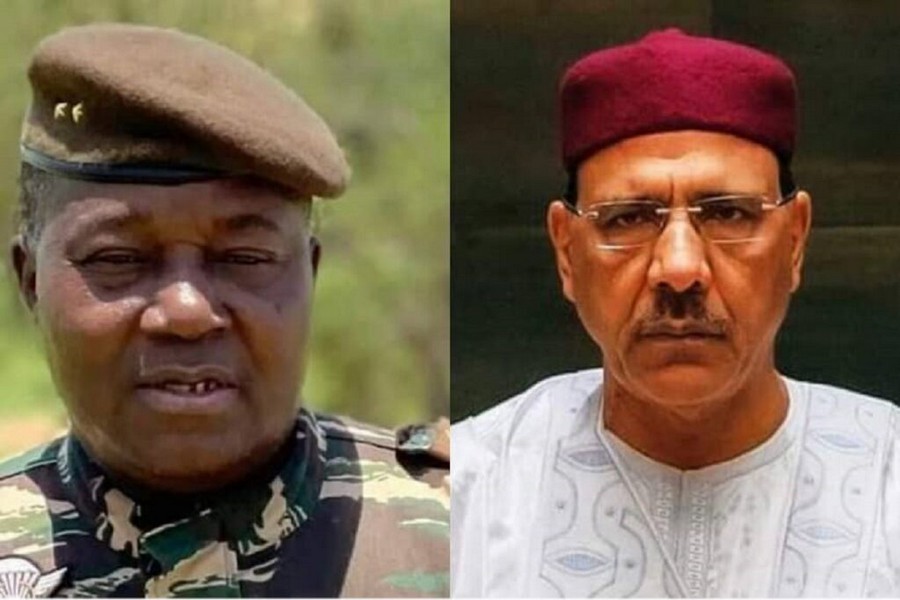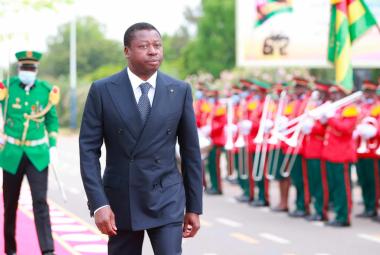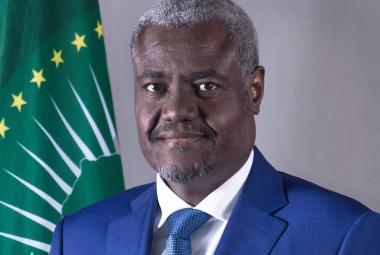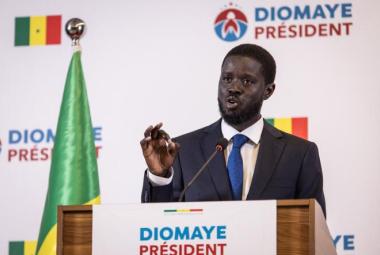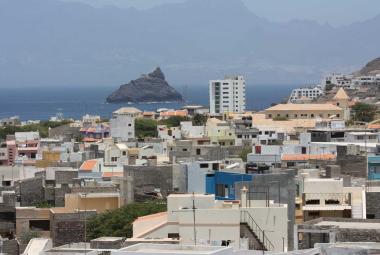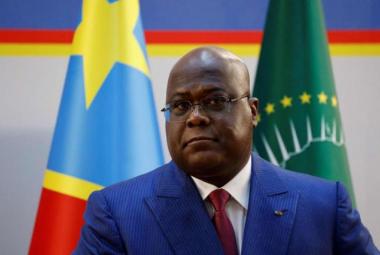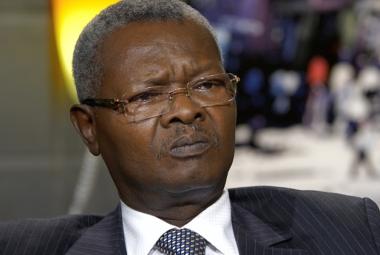The socio-political situation in Niger marked by the interference of the military in politics requires a solution so that the country can resume normal life. Faced with the putschists of the unusual coup d'Etat of last July 26 who last at the head of the country and an announced military intervention by the Economic Community of West African States (ECOWAS) which is being desired, this does not never ceases to arouse comments in Africa. Between supporters and opponents of one or other of the options.
The African adage is well known and one of the most popular on the continent which goes something like this: “Before going to sweep in front of others, you must first sweep in front of your door”. And yet, Africans have this obsessive, even pathological propensity to conceal what is happening at home in order to be extremely concerned about what does not primarily concern them.
Many citizens of Central Africa have an unexplained passion for the socio-political affairs of West Africa, whereas in many Central African countries, the situation leaves something to be desired and they do not excessively worry about it. As if their so-called pan-Africanism only applied to countries outside their sub-region.
On the whole continent, West Africa is not badly placed among the regions where the aficionados of this continental sport are the most numerous.
It is also possible to see this with some colleagues from Burkina Faso in particular, who miss no opportunity to talk about other countries or their leaders while they are unable to say even a third on Burkina Faso or even Captain Ibrahim Traoré. They keep a low profile on current events in Burkina Faso. On the other hand, abroad, they cheerfully indulge in vitriolic criticism.
What ECOWAS is accused of
ECOWAS is the only sub-regional organization on the entire African continent that functions as best it can. It is an open secret. But not all West Africans may know this. However, they are entitled to reproach him for his lethargy in the face of what could have given him more credit and respectability. Namely giving the force of law that applies to all, including Heads of state in office, to its decisions when it comes to respecting the principles of pluralist democracy and good governance in West Africa. But also and above all, implement concrete actions in favor of the populations of member countries.
Nevertheless, it is not because there are many things to reproach ECOWAS for that it should let the military decide, in each country, when to stop an ongoing democratic process or not. According to their wishes, and and without taking into account the other civilian components of the nation, as is the case in Niger Republic.
Nobody wants war in Niger Republic. On the other hand, Niger's soldiers must return power to President Mohamed Bazoum and return to their barracks. We must stop the spiral of coups in West Africa at the gates of Niger Republic once and for all. And we must go further to also reform ECOWAS in depth so that it definitively ceases to be so lethargic and treated as a union of Heads of state to fully play its role in the service of the populations of West Africa. ECOWAS must not show any complacency towards the putschists. No offense to all those who take a dim view of his intervention. Its credibility and its survival depend on it.
Even if Nigeria has been weakened in recent years by the various jihadist groups, it will have to fully assume its role as leader in West Africa. On taking the helm of ECOWAS, President Bola Tinubu himself declared: “Nigeria, we are back”. It was during the 63rd ECOWAS Summit on July 9, 2023 in Guinea-Bissau at the end of which he was elected by his peers to head the organization. And he added: “We need (democracy) to be an example for the rest of Africa and the world.” It was only a few days before the putsch of July 26, 2023 against the democratic regime of President Mohamed Bazoum in Niger.
Benin Republic is not a model, and the regime is afraid…
Benin Republic is not a model in terms of democracy and governance. On the contrary, it is a Dictatorship with institutions of the Republic whose cosmetics borrow from the political system of pluralist regimes.
The Beninese are not different in this from those who like to talk about other people's countries while the socio-political situation in Benin Republic contains many more ingredients which have led elsewhere to all these putsches that we are decrying. In many ways, one could even say that the Beninese are doing even worse, if we take into account the fact that their self-proclaimed President "Born Competitor" decreed that they were in Democracy. In any case, it is because he strives to make people believe internationally and he sings it from the rooftops, that Benin is a Democracy. You said Democracy!...
“In a Chronicle, the Beninese journalist and academic Francis Kpatindé, teaching at Sciences Po Paris, wrote this: “To be long-lasting, a democracy needs solid and consensual institutions. Its preservation is also due to the degree of discernment of those who receive a mandate from the people to be its leaders. Benin's current difficulties arise as much from the holding of non-inclusive legislative elections on April 28 as from the temperament, style and ultra-liberal ideas of the man who has presided over its destiny for three years (*1).”
Patrice Talon decided to take control of Benin Republic in collusion with a certain number of socio-political actors in Benin Republic, one wonders at what price they granted him their collaboration. This is a strategy aimed at controlling the country's economy in order to be able to control the political game through its leaders. Whether political or economic, the opaque issues on which the interests of the Beninese State have been sacrificed for its benefit are legion. This allowed him to take control of entire sections of the Beninese economy and to involve the foreign companies of his friends in other places, so as to benefit from the widest possible influence over the country. A situation which makes current Benin, if not a Protectorate, at least outright a Patrice Talon Holding.”
This extract from the book Benin Republic: Understanding the governance of Patrice Talon in 100 questions and answers by Marcus Boni Teiga which also quotes Francis Kpatindé says a lot about Democracy, version Patrice Talon known as the “Born Competitor”. Since the beginning of its independence to the present day, Benin Republic has not known a Dictatorship as devious and pernicious as the one that Patrice Talon imposed on the Beninese with the complicity of certain military leaders of the Beninese army and greedy politicians, ready to sell an entire country and with it all its people. In which Democracy, we decide alone at the presidential palace and all the other institutions of the Republic run roughshod? In which Democracy, Justice is linked to one's personal will? In which Democracy does one send half of the country's political staff into exile and put a gag order on all the others inside? And what about Sébastien Ajavon, the political opponent and business rival whom Patrice Talon had no mercy in persecuting, martyring and stripping of his property after the latter helped him win the second round of the 2016 presidential election? If ridicule could kill...
Instead of making fun of the deposed President Ali Bongo, and of the Bongo Dynasty of which he was the last representative in Power, the Beninese would do much better than take care of Benin Republic which is in tatters, both socially and politically. It must be said that with a Constitution tailor-made to the ambitions of Patrice Talon, a vassalized National Assembly which functions like a cash register - despite the latest entry of a few opponents -, the country no longer belongs to the Beninese, it belongs to Patrice Talon and all the economic predators on his team. And, all-powerful like Jupiter that he is, he can govern as he pleases without being accountable to any institution of the Republic whatsoever. Like for example bringing in any foreigner and placing him in a highly sensitive position in the State of Benin. In this case Pascal Nyamulinda, the Rwandan whom Patrice Talon appointed as Director General of the Personal Identification Agency (ANIP) is one of these examples, if there was still a need to prove it. Just as he can bring any servant from Pétaouchnok, as long as it suits his interests, it doesn't matter what the Beninese think about it. Except that in these times, it is better that they come from elsewhere than from the country of Vladimir Putin. Follow my gaze...
Henri N'dah-Sekou, journalist at the Benin Republic Radio and Television Office (ORTB), in Cotonou, does well to write on his Facebook page:
“The #Gabonese have carried out their #putsch since August 30, and are happy, apparently.
But West Africans see it as a plot, a false coup d'état, to keep the #Bongo and the French in business.
Is it so difficult for everyone to mind their own business?
#Gabon, Gabon, Gabon, ... at least they have money lying around everywhere, and there are not even many of them, barely 2.5 million.”
Coups d’Etat stamped Wagner or Russia
Browsing certain social networks, or even certain media following the coup d'Etat in Gabon, one would believe that for a coup d'Etat to now be a real coup d'état, it would necessarily have to be stamped “Wagner” or “Russia”. And if this is not the case, may he anoint Vladimir Putin’s Russia.
In the past, when African soldiers carried out their coups, the citizens of the countries concerned were not overly concerned about knowing who was hiding behind the putschists. Today, things are completely different, particularly in French-speaking Africa. And, precisely, this is one of the reasons why the soldiers of French-speaking countries, notably Mali, Burkina and Niger Republic; have great difficulty making themselves more audible and credible. Apart from Russian Agents and the small Pro-Russian groups that support them, it is difficult to be accepted by the entire African public, both French and English. Unless we brandish the argument of French presence or domination to try to mask this extremely dangerous connection with Moscow which will only bring deprivation of freedoms and Dictatorship in Africa. All things that Civil society in West African countries is not ready to accept.
France is therefore in reality only a ready-made pretext to justify the unacceptable interference of the Military in Politics. For a whole host of reasons, some of which are well-founded – it must be admitted – the putschists would like to make Africans believe that it is better to have a relationship with Russia than with France and the West. Or that Democracy is not made for our African countries and that it would be better to have Dictatorship and opacity which are always characteristic of Relations between Africa and a country whose President Vladimir Putin has the right of life or of death on all Russians. Even when you are a man as influential as Yevgeny Prigozhin, the former boss of the Wagner Group. The President of Belarus, Alexander Lukashenko, had already told Vladimir Putin the day after Yevgeny Prigozhin's aborted coup: “I told Putin: we can kill him, it's not a problem. Either on the first attempt or on the second. But I said: don’t do it,” President Alexander Lukashenko said at the time. Suffice to say that his death is now more than suspicious. Especially since it was not a Ukrainian missile that shot down his plane, and it was shot down on Russian territory, which is worse.
ECOWAS is not CEMAC and Niger Republic is not Gabon
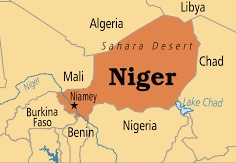 We should not compare the coup d'Etat in Gabon to the coup d'Etat in Niger, nor the Economic Community of West African States (ECOWAS) to the Economic and Monetary Community of Central African States (CEMAC). Due to the very fact that the geographical spaces are not the same, they do not have the same principles and the same operations if we examine the history of these two organizations in parallel.
We should not compare the coup d'Etat in Gabon to the coup d'Etat in Niger, nor the Economic Community of West African States (ECOWAS) to the Economic and Monetary Community of Central African States (CEMAC). Due to the very fact that the geographical spaces are not the same, they do not have the same principles and the same operations if we examine the history of these two organizations in parallel.
We should therefore not take the fait accompli of CEMAC in the face of the Gabon coup as the model to be followed by ECOWAS. In West Africa, there is a long tradition of military interventions in member states. Starting with the creation of ECOMOG (Economic Community Cease-Fire Monitoring Group) in Liberia in 1990, the intervention in 1997 of ECOMOG under the leadership of General Sani Abacha in Sierra Leone to reinstate the elected President in office. , Ahmad Tejan Kabbah, overthrown by a junta led by Commander Johnny Paul Koroma, the multiple interventions of ECOWAS in Guinea-Bissau, the threat of intervention by ECOWAS in Gambia to force Dictator Yahyah Jammeh, defeated in the 2017 presidential elections, to give in Power to elected President Adama Barrow.
No one has ever questioned these interventions which have always made it possible to save and maintain regimes that function more democratically than under the authority of the military resulting from some coup d'état. Because these have often been regimes resulting from pluralist, inclusive and credible elections. However, any coup d’état calls into question the expression of popular suffrage and the choice of the people to impose the will of the putschists on everyone.
In West Africa, the strategy is ready to mobilize in favor of the military. It is to point the finger at France, including by inventing lies. This is the Russian strategy and it works. It is the former Colonizer. It is indeed too easy to let your supporters demonstrate loudly while depriving those who do not support the military of any means of expression, as is the case in Niger Republic, and then make people believe that the support of the population the failure of the military is total.
All political actors in Africa know the magic formula for filling stadiums when it comes to creating illusions during electoral campaigns. Even if the results of the polls never reflect the temporary illusion of stadiums crowded with so-called supporters or sympathizers. There is nothing new under the African sun to impress the informed observer of African politics. This ploy is only intended for foreigners and international public opinion.
“In Gabon or elsewhere, those who cheer the putschists often have a short memory. In this or that country, these same soldiers, in the not-so-distant past, distinguished themselves by their brutality against those who cheer them today. But, any voice that would recall these facts would be inaudible, in the current euphoria. The time for clarity will come. In the meantime, the general has a respite. To go down in history. Or to disappoint, like so many other putschists, heroes of a time. Africa, fortunately, also has a few rare putschists who have helped their peoples progress. But, whatever the reasons that motivate it, a coup d’Etat is nothing glorious for a people! Africa would therefore be wrong to indulge, here, in the disturbing notion of useful or necessary coups. Because each putsch alters the signature and credibility of the State and, often, also those of its neighbors, especially when they belong to the same group.”
The columnist of Radio France Internationale (RFI), Jean-Baptiste Placca, continues his analysis by recalling that one of the unfortunate consequences of these untimely coups d'Etat is the retraction of the financial markets vis-à-vis not only the countries concerned by the putschs but of all of their neighbours. By invoking the reluctance of Investors who were quick to say that “Financing projects in Africa is too risky”. And rightly so. Because every investor seeks not only the security of his investment but also his return on investment. All things that instability and coups do not guarantee.
Obviously, coups are far from good business for ECOWAS, beyond even the simple fact that they constitute a political danger for the fragile institutions put in place to teach democracy. Economically, they jeopardize both the financial investments and the development of the countries, and consequently the social progress inherent in the improvement of the living conditions of the populations already largely in precariousness.
By Serge Félix N’Piénikoua
*1 - Francis Kpatindé, « Patrice Talon veut transformer le Bénin en une immense SARL dont il serait l’unique actionnaire », Le Monde Afrique, Publié le 08 mai 2019 à 10h05 : https://www.lemonde.fr/afrique/article/2019/05/08/patrice-talon-veut-transformer-le-benin-en-une-immense-sarl-dont-il-serait-l-unique-actionnaire_5459603_3212.html (*1 - Francis Kpatindé, “Patrice Talon wants to transform Benin into a huge SARL of which he would be the sole shareholder”, Le Monde Afrique, Published on May 8, 2019 at 10:05 a.m.: https://www.lemonde.fr/afrique/ article/2019/05/08/patrice-talon-wants-to-transform-benin-into-a-huge-sarl-of-which-he-would-be-the-sole-shareholder_5459603_3212.html)
*2 – Marcus Boni Teiga, Le Bénin : Comprendre en 100 questions-réponses la gouvernance de Patrice Talon, Editions Complicités, février 2021. (*2 – Marcus Boni Teiga, Benin: Understanding the governance of Patrice Talon in 100 questions and answers, Editions Complicités, February 2021.)



